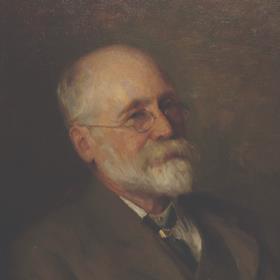Joe Warton considers the place of ambition in the life of a Christian
Is it just me, or have there been more competitions going on lately than you can shake a line of raffle tickets at? The Euros, Wimbledon and now the Olympics. Before that, we were glued to Britain’s Got Talent, and in the tech world, Apple, Microsoft and Nvidia continue to scrap it out to be the most valuable company in the world. At the time of writing, Microsoft top the pile at an eye-watering $3.475trn!
And, of course, competition infiltrates our everyday lives too. Will I get selected to lead this project? Will I be one of the lucky 60 per cent in my company who won’t be made redundant? Will my lemon drizzle get voted best cake at the village fête? Will my child win the sack race at sports day?
With all this competition going on around us, what should we make of it? And to what extent should Christians be ambitious to come out on top?
Making the case for success
Part of how we view ambition and competition will depend on where we start reading the Bible from. If we primarily understand the human condition starting in Genesis 3 (I’m a sinner) and ending somewhere around the crucifixion (saved by grace), it’s likely we’ll have a fairly low view of human activity – and anything like competition or ambition are therefore ruled out as wrong. Of course, being sinners saved by grace is part of who we are, but it’s not the entirety of who we are.
When we look at our origins (Genesis 1 and 2), it’s pretty epic. We bear the image of God, and are called to “be fruitful and multiply; fill the earth and subdue it” (1:28, NKJV). We are made rulers – priest-kings – over the created order. God gives us both freedom and what social scientists call ‘agency’, meaning we have power and authority to create and change things.
David marvelled at our privileged position: “You have made [humankind] a little lower than the angels and crowned them with glory and honour. You made them rulers over the works of your hands; you put everything under their feet” (Psalm 8:5-6).
When we read these sections of scripture, it’s hard to conclude that Christians should be people in the corner, muttering: “Oh, I couldn’t possibly!” If we really are “rulers over the works of [God’s] hands”, we can be people who set goals, dream big, take responsibility and go for it. In that sense, healthy ambition is baked into us. It’s a feature, not a bug.
But what about competition specifically? Aren’t we supposed to love our neighbour, not beat them? Great question; I’m glad I asked! So yes, in a world where sin exists, both ambition and competition can be destructive (and we’ll get to that). But there’s also a lot of good that comes from competition.
We can demonstrate gratitude, kindness and grace – whether we win or not
Think about the moon landing in 1969. Would that have happened if the United States weren’t competing against the Soviet Union? Or what about the staggering advances in technology we see; would they happen without companies competing against one another? Probably not.
Competition pushes people to do better, while at the same time helping us get the right people into the right places. An element of competition in our political system means leaders and parties can’t rest on their laurels. If you underperform, you get voted out. And in the world of work (at least in theory), an element of competition for jobs or promotion pushes people to develop their skills – and hopefully means we end up with competent people driving our trains, investing our savings and replacing our hips.
As well as boosting performance and innovation, competition also makes a lot of things more interesting. Imagine if competition was removed from The Olympics: “So, guys, we’ve decided we’re just gonna watch the athletes ride around on their bikes – we won’t be running the clock or looking to see who gets over the line first…” No thanks. Even just playing UNO! with the grandkids wouldn’t be as fun if no one was trying to win!
So, competition can be part of loving our neighbour and creating a better world. And if that is our goal as Christians, healthy ambition may well need to be in the mix.
A lack of ambition – a tendency to hang back and let someone else do it – can actually be damaging. I first read these words from Robert Greenleaf’s Servant Leadership (Paulist Press) 20 years ago, and they still haunt me today: “In short, the enemy [of society] is strong natural servants who have the potential to lead but do not lead, or who choose to follow a non-servant.”
The implication is that if good, humble and competent people lack ambition and refuse to compete, our boardrooms and podiums will be loaded with narcissists – and our teams, schools and community groups will be led by takers, not givers. Sometimes the right people need to put themselves forward.

Focused ambition
Both competition and ambition can, however, also be corrupt and corrupting. We hear the stories: the executive in pursuit of a bonus who makes a decision that hurts customers, the environment and even their own company. The successful footballer who becomes arrogant and entitled. The driven tradesperson who sacrifices their relationship with their kids in order to expand their business.
How then, as Christians, might we be ambitious and competitive in a healthy way?
In his book, Working from the Inside Out (IVP), Jeff Haanen shares the story of Canlis, a fine dining restaurant in Seattle which is owned by Christians. In its nearly 75 years of operation, it has won many awards.
At the heart of their success is their ambition to “live out the idea that more often than not, it’s worth putting other people first”. Their main goal is great, humble relationships – that’s what drives them. They want employees to have great relationships with one another and their customers. Of course, they want a successful and sustainable business, but not at any price. Relationship trumps revenue.
The world needs Christians with healthy ambition and good character
As Christians, we have a dual goal: to love God and to love our neighbour. When this informs the other goals we set ourselves, it steers us towards life-giving, world-enhancing and God-honouring results. If you’re a teacher, this might mean aspiring to be head of department, or maybe even head of school. But not for the power or the prestige, but in order to help other teachers flourish, create healthy environments for students and implement policies that minimise frustration and maximise creativity. If you’re an entrepreneur, you can have goals that focus on enriching the lives of your customers and providing secure and rewarding jobs for those in your community.
Goals like these are more fulfilling to work towards, and more satisfying when we reach them. If all we’re aiming for is an external, non-relational goal – winning a medal, earning £200K a year, getting some letters after our name – when we achieve it, it’s pretty hollow. The term ‘gold medal syndrome’ exists for a reason. Acquiring wealth, titles or status does not satisfy us. But connecting with people and genuinely serving them does.
Ambitious ministry?

The 19th century saw the launch of a raft of great businesses founded by Quakers, including Cadbury’s, Clarks and Rowntree’s. They focused on creating quality products and providing satisfying, fair-paying jobs for their staff.
For these businesses to work, they had to be ambitious: making plans, buying machinery, employing staff, building factories and marketing products. Without ambition, these great companies would not have existed.

Dr Jennifer Wiseman is the senior project scientist for the Hubble Space Telescope. She’s a committed Christian who’s at the forefront of astronomy, helping humanity understand and marvel at the universe.
To get to that position, she’s had to be ambitious: going to college, pursuing a PhD, applying for ‘big’ jobs. And she’s had to embrace competition: being interviewed for positions where only one candidate could be chosen.

Eric Liddell, of Chariots of Fire fame, was a sprinter who claimed gold in the 400m at the 1924 Paris Olympics. His family were cross-cultural missionaries in China and his sister, Jennie, saw Eric’s competitive running as a turning away from his calling to mission. But Eric saw running as a means by which he could glorify God.
He’s famous for holding to his values throughout his racing career. Believing it was wrong to compete on a Sunday, he didn’t compete in his strongest event at that Olympics, the 100m, instead claiming gold in the 400m. The rest, as they say, is history.
The right goal
Having the right goal really matters, but that alone doesn’t solve everything. We can all list people who’ve set out with noble-sounding intentions, only to leave a trail of bruised people, broken churches or busted charities in their wake. It’s possible to have an aim that’s good, but inside to just be baptising our selfish ambition, or cloaking our consumerism in a cassock. Character really matters.
This is what Jesus was getting at when he asked: “What good is it for a person to gain the whole world, yet forfeit their soul?” (Mark 8:36). In the Greek, the word we have translated as ‘soul’ is ‘psyche’. This doesn’t so much describe an invisible spiritual substance located somewhere behind our sternum, but rather the whole of us, the very essence of who we are. Jesus’ point is that you can achieve all the goals in the world, but if you become so unrecognisable from the image-bearer God made you to be, you are lost forever.
Thankfully, there is a better way – and Jesus gave his life to make that possible. He is the one “who gave himself for us to redeem us from all wickedness and to purify for himself a people that are his very own, eager to do what is good” (Titus 2:14). This deep transformation is possible because we have God’s Spirit at work in us (see Romans 8).
This refining work doesn’t take place in a vacuum, but in the midst of the activities we engage in day by day – including competition. That means whether we’re trying to make a sale, beat the neighbouring town at cricket or win an Olympic gold, we can engage in competitive activities in ways that form rather than de-form our character.
We can be truthful about the product or service we are selling. We can joke with the opposing batsman without being mean. We can train for sporting success and develop virtues like patience, humility and endurance. In pursuit of victory, we can demonstrate gratitude, kindness and grace – whether we win or not.
As God leads
If you’re a Christian, Jesus is your Lord. As the Lord of your life, it’s possible he might call you to do something ambitious, something that involves competing in some way. Depending on your wiring, upbringing and theology, you might find this appealing, or it might make you distinctly uncomfortable. But if Jesus is calling you to do something, go for it. If it’s a worthy aim, do it with him, like him and for him – you won’t “forfeit your soul” in the process.
Sometimes, though, Jesus might call you to lay aside an ambition, or step away from competition. This might be to devote more time to caring for a family member or to free up capacity to serve your church or local community. It might just be for the sake of your own wellbeing. If he calls you to do that, no matter how hard it is, trust him.
Acquiring wealth, titles or status does not satisfy us
And let’s not judge each other. You might not be very ambitious, and look at other go-getting Christians with a level of suspicion, confusing confidence for arrogance and success for pride. The world needs Christians with healthy ambition and good character. Pray for such people, encourage them and find out how they’re doing.
And if you’re someone who is ambitious, don’t look down on your brothers and sisters who are less so. As Mother Teresa so helpfully said: “Not all of us can do great things. But we can do small things with great love.” God will not judge us on how ambitious we are, but by how faithfully we respond to his call in our lives.







































1 Reader's comment